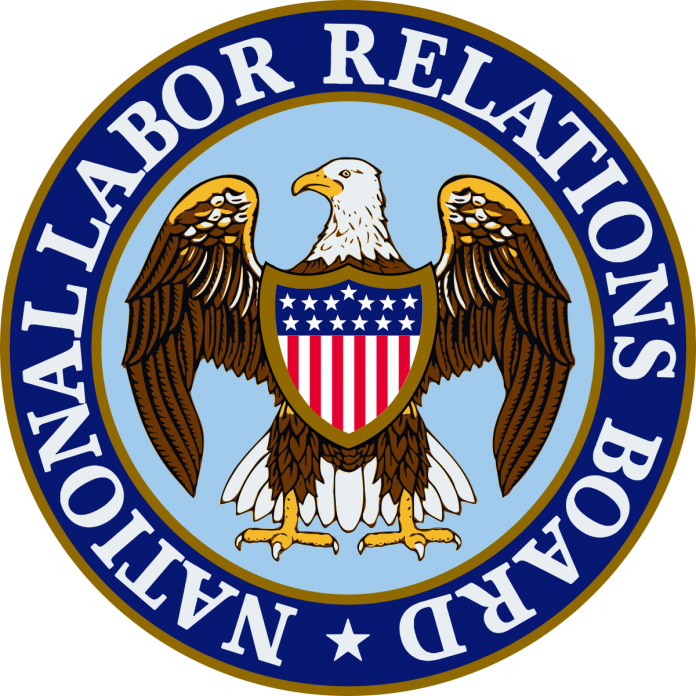ED Legally Speaking: The new legal decision will make it more challenging to classify dancers as independent contractors.
(Note: This story appears in the September 2023 issue of ED Magazine)
T
he ongoing legal battle over independent contractor versus employee status produced a June 13 decision by the National Labor Relations Board (NLRB), imposing more stringent criteria to classify workers, including club entertainers, as independent contractors. The NLRB’s sole purpose is to encourage collective bargaining, which cannot happen if workers are classified as independent contractors. Therefore, the NLRB is sometimes tasked with deciding whether workers are improperly classified as independent contractors and denied the right to create employee unions.
In the Atlanta Opera case, the NLRB decided that make-up artists, wig artists and hairstylists who worked at the Atlanta Opera were misclassified as independent contractors and should be classified as employees entitled to unionize. This decision is significant to all employers nationwide because it creates precedent in how courts interpret employee classification matters.
In handing down its decision, the NLRB overturned its so-called 2019 Super Shuttle precedent (an easier independent contractor standard) in favor of what is known as FedEx II. In doing so, the NLRB opined that “Entrepreneurial Opportunity” shall be considered above all of the other nine factors listed in Section 220(2) of the Restatement (Second) Agency common law factors when evaluating a putative contractor’s independence to pursue economic gain.
The NLRB decision comes as several states introduce legislation patterned after the ABC Test from California’s AB5, created via a 2018 California state court decision and codified into law effective January 1, 2020. The ABC Test replaced the traditional Borrello test and dramatically changed California’s labor landscape, requiring adult nightclubs to transition dancers from independent contractors to employees. Specifically, California’s second prong of the ABC test (the person performs work that is outside the hiring entity’s business) makes it seemingly impossible to classify adult nightclub entertainers as independent contractors. On June 30, 2022, the United States Supreme Court denied the petition for review filed by the California Trucking Association requesting a review of a California Federal Court ruling on AB5. While the FedEx II standard is NOT the ABC test, it is still paving a road, making it increasingly more complex for employers to utilize independent contractors.
ED Magazine Legal Correspondent Larry Kaplan spoke with California labor attorney Devon M. Lyon about the ramifications of the NLRB Atlanta Opera decision and how this latest piece of the independent contractor classification puzzle might impact adult clubs going forward.
ED: After this NLRB decision, how does the court decide whether an individual is an independent contractor?
LYON: The court concluded that the analysis should turn on the questions of whether the putative contractor: (a) has a realistic ability to work for other companies; (b) has proprietary or ownership interest in their work; and (c) has control over important business decisions (such as scheduling, hiring, assignment of employers, purchasing equipment and committing capital). In addition, its analysis looked at the following factors:
1. The extent of control by the employer;
2. Whether or not an individual is engaged in a distinct occupation or business;
3. Whether the work is usually done under the direction of the employer or by a specialist without supervision;
4. Skill required in the occupation;
5. Whether the employer or individual supplies instrumentalities, tools and place of work;
6. Length of time for which the individual is employed;
7. Method of payment;
8. Whether or not work is part of the regular business of the employer;
9. Whether or not the parties believe they are creating an independent contractor relationship;
10. Whether the principal is or is not in business; and
11. Whether the evidence tends to show that the individual is, in fact, rendering services as an independent contractor.
ED: What did the ruling change?
LYON: The FedEx and Super Shuttle opinion both use the same factors, including the amount of control a company has over the worker, the skill required for the job and how the worker is paid, but the tests differ on the weight afforded to the entrepreneurial opportunity factor. Under FedEx, entrepreneurial opportunity is relevant but requires evidence that these opportunities resulted in a worker conducting independent business activities for the factor to weigh on the side of independent contractor status. A return to FedEx II allows courts to consider the opportunity for gain or loss (i.e., entrepreneurial opportunity) as the core animating principle of the independent contractor test. In other words, entrepreneurial opportunity is given greater consideration than the other factors identified above. However, the court did confirm that this is still a “totality of the circumstances” test, and outcomes will be evaluated on a case-by-case basis. The burden of proof is on the party asserting independent contractor status.
ED: Can other state and/or federal courts consider this NLRB decision when deciding future cases?
LYON: The National Labor Relations Act protects workplace democracy by providing employees at private-sector workplaces the fundamental right to seek better working conditions, including unionization. If people are not employees, they cannot unionize, so when asked, the NLRB must decide if employees were denied unionization by virtue of their misclassification (i.e., independent contractors).
Generally, any District Court can follow an NLRB ruling, so the significance of this particular case will impact employers in nearly every state in this country (except in states that apply greater employee protections). Therefore, even though a plaintiff may not be seeking the same remedy (i.e., unionization), a District Court can draw upon the opinion of this case in deciding whether a worker is an independent contractor.
ED: What can clubs do when considering “entrepreneurial opportunity” compliance?
LYON: 1. Assess the worker’s independence to make meaningful decisions bearing on profit or risk of loss; and
2. Conduct audits with counsel regarding the classification of workers to mitigate potential exposure.
Suppose clubs (outside states like California, which follow the ABC test) wish to continue classifying dancers as independent contractors. In that case, they should carefully evaluate their current policies and procedures to ensure that the entertainers are free to control their environment and have an independent entrepreneurial opportunity. There are some products clubs can use to establish the “Entrepreneurial Opportunity” of its dancers potentially. One of those is Pole Position (www.poleposition.app), a computer/cell phone app that allows exotic dancers the autonomy to decide where, when and how they will work by searching for jobs posted on the app by clubs. It essentially empowers dancers to create their own entrepreneurial opportunities. In light of this ruling, products like this are worth a look if employers want dancers to remain independent contractors.
ED: What are the potential legal ramifications of misclassifying workers are independent contractors?
LYON: Plaintiffs generally pursue misclassification claims as a violation of the Federal Fair Labor Standards Act (FLSA). Once the lawsuit is filed, clubs can seek to enforce arbitration agreements (with class waivers) to avoid a collective action, but if arbitration is pursued, the employer is generally tasked with paying for the arbitration fees, which can be pretty expensive. If there is no arbitration agreement or you prefer to waive arbitration and keep it in court, you will likely be faced with opposing a Motion for Collective Certification. The Plaintiff and their attorney will be entitled to contact information concerning any potential class members if granted. Joinder from additional class members can result in a more costly lawsuit. Through litigation, Plaintiffs can seek to collect unpaid wages, reimbursement of reasonable attorney’s fees and costs, as well as liquidated damages that may allow employees to recover twice their actual back wages.

ED: Will the ruling be appealed?
LYON: The decision will likely be appealed to the U.S. Court of Appeals for the District of Columbia Circuit. Although the appellate court has previously rejected the Fedex II standard, some believe this go around could be different, and the court will uphold this Atlanta Opera decision.
ED: What are the takeaways?
LYON: This is definitely not the ruling employers were hoping for, but it did confirm that the test is still a “totality of the circumstance” test, so all of the factors are considered when deciding whether a worker is an independent contractor or an employee. However, the NLRB court also clarified that it would consider a dancer’s entrepreneurial opportunity more than any other factor, so when reviewing your policies and procedures, focus on that issue.
Note: This article briefly summarizes extremely complex legal issues and is provided for general information purposes only, and is not intended to provide either an exhaustive analysis of these matters or any specific legal advice or recommendation. Laws vary by state and municipality. The positions and opinions expressed by attorney Devon M. Lyon are hers alone, and do not necessarily reflect those of ED Publications. Club operators and others are strongly encouraged to consult their attorneys and accountants for specific advice on how these issues will affect their businesses and what measures to take. Larry Kaplan and ED Publications do not guarantee the accuracy of this information.
Devon M. Lyon has been an attorney for 20-plus years and is the owner and lead attorney at the labor and employment law firm Lyon Legal, P.C. Contact Devon M. Lyon at (562) 216-7382 or email d.lyon@lyon-legal.com.
Larry Kaplan has been the Legal Correspondent for ED Publications for 24 years. Mr. Kaplan is a broker in the sale and purchase of adult nightclubs and adult retail stores and the Executive Director of the ACE of Michigan adult nightclub state trade association. Contact Larry Kaplan at (313) 815-3311 or email larry@kaplanclubsales.com.





























